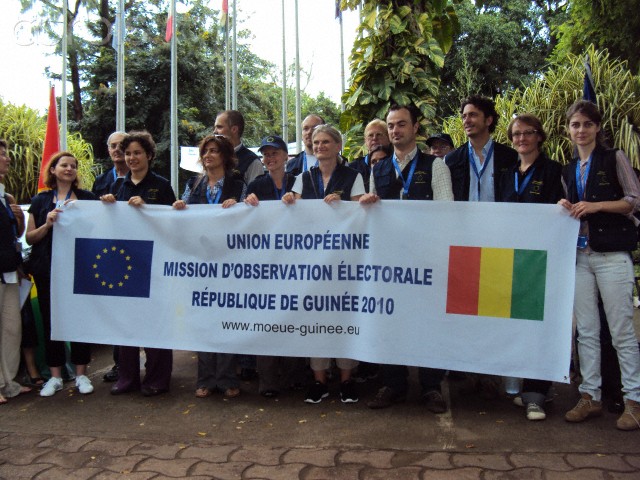The will of the people as conveyed via credible, free and fair elections held at regular intervals on the basis of universal, equal and secret elections; is supposed to render any government legitimate. This explains why free and fair elections along with a credible electoral process in any modern state cannot be overstressed.
Democratic elections, although held periodically, have come to be considered as a means to effect change in states especially in Africa. One of such states is Guinea, officially known as the Republic of Guinea, found in West Africa. Formerly called French Guinea, it is today sometimes called Guinea-Conakry to differentiate it from its neighbour Guinea-Bissau and the Republic of Equatorial Guinea.
The country experienced a military coup in 2008, which led to most of the country’s institutions, including the National Assembly to be dissolved. These elections were considered as being the first free and fair elections since independence in 1958. The first round of elections took place on 27 June 2010 with ex-Prime Minister Cellou Dalein Diallo and his rival Alpha Condé emerging as the two runners-up for the second round. However, due to allegations of electoral fraud, the second round of the elections was postponed until 19 September 2010. A delay until 10 October 2010 was announced by the Independent National Electoral Commission (INEC). Yet another delay until 24 October 2010 was announced in early October 2010. Elections were finally held on 7 November 2010. Voter turnout was high and on 16 November 2010, Alpha Condé, the leader of the opposition party Rally of the Guinean People (RGP), was officially declared the winner of a 7 November run-off in Guinea's presidential elections.
On the night of 18 July 2011, President Condé's residence was attacked in an attempted coup. This was a sign by disgruntled groups in the country, for a need for change at the country’s helm.
The National Assembly of Guinea, the country's legislative body, had not met since 2008 when it was dissolved after the military coup in December 2008. Elections had been postponed many times since 2007 and, most recently, were scheduled for 8 July 2012. In April 2012, President Condé postponed the elections indefinitely, citing the need to ensure that they were transparent and democratic.
On Monday, September 17, 2012, the National Transitional Council (the Council) of Guinea, which provisionally sits in for the National Assembly, adopted a new law governing parity in the Independent National Electoral Commission (INEC). Out of the 120 members of the Council present during the passing of the law, just four members abstained, thereby giving a chance for the law to come into force.
The INEC had to be composed of ten members from the ruling party, ten members from the opposition party, three from civil society and two from the Ministry of Territorial Administration and Decentralisation. Some opposition political parties were not included in the new restructuring of the INEC. Representing the Council, Mr. Traoré said not all opposition parties but major political parties could be represented in the INEC.
The new law provides a seven-year term which is non-renewable for members of INEC, while the old law was silent on this matter. To ensure the independence of the members of INEC, Article 8, paragraph 3 is of the position that, members of INEC shall not seek or receive instructions or orders from any public or private authority, including their original structure, while exercising their duties.
The office of Chairman of INEC is reserved exclusively for civil society who can be elected by an absolute majority on the first ballot and a relative majority in the second round.
Given all the rumours of embezzlement that INEC has known, the new law provides that in the performance of its operating budget, INEC conducts at least once a year, an internal audit to ensure the correct application of the rules in fiscal management. At the request of the government or financial and technical partners, the organization is also subject to an external audit.
Opposition parties especially those not represented in INEC have protested against the new law. Such protests have not only been orchestrated by Guineans at home, but also those in the diaspora, especially in New York, USA.
A positive move taken by the new law is having the Chairperson come from civil society. It is important for such an official to be free from government coercion and corruption. If not, such a Chairperson would be serving the interest of the regime in power at the detriment of the Guinean populace.
In as much as it was difficult to include all political parties in the INEC, from all indications, the political party in power would definitely influence the decisions of INEC. This is so because; the representatives of the Ministry of Territorial Administration and Decentralisation adhere to the party in power. There is therefore need for parity in the composition of INEC for the will of the people to be conveyed via credible, free and fair elections in Guinea.
Chofor Che is an associate of AfricanLiberty.org and an integral part of the Voice of Liberty project. He is also doctoral candidate at the Community Law Centre, Faculty of Law, University of the Western Cape and blogs at choforche.wordpress.com


